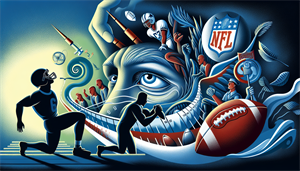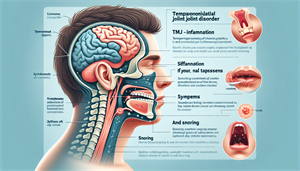
Brett Favre Sleep Apnea: His Battle with the Condition
When you think of NFL legend Brett Favre, you might picture a fearless quarterback with an iron will. But did you know that he battled a hidden enemy off the field - Brett Favre sleep apnea? In this article, we will explore Favre’s journey with this sleep disorder, as well as the importance of sleep apnea awareness in the NFL, other players who have faced this condition, and coping strategies for athletes. So let’s dive into the inspiring stories of those who have conquered Brett Favre sleep apnea and emerged stronger than ever.
Key Takeaways
Brett Favre’s inspiring journey with sleep apnea shows how important it is to seek diagnosis & treatment. NFL players must be aware of the health risks associated and other athletes have overcome their condition. Celebrities like Randy Jackson, Amy Poehler, Shaquille O’Neal and others are advocating for awareness on this serious sleep disorder.
Brett Favre's Sleep Apnea Journey
Quarterback Brett Favre, former Vikings player, retired from professional football due to his obstructive sleep apnea (OSA) - a sleep disorder that occurs when the body obstructs the airways during sleep due to sagging muscles in the throat and mouth. Following his sleep apnea testing, he received an OSA diagnosis and immediately sought treatment. He ultimately chose CPAP therapy for managing his condition. Favre’s journey underscores that sleep apnea can affect even those at peak physical fitness. His resolve in pursuing treatment and implementing requisite lifestyle changes exhibits his resilience and inspires others battling this sleep disorder.
The Turning Point
During his NFL career, Brett Favre recognized his need for more sleep due to morning difficulties stemming from untreated sleep apnea. Despite being an incredibly fit individual, he was diagnosed with OSA after undergoing sleep apnea testing. This turning point in his life led him to make the difficult decision to retire prematurely from professional football. Identifying sleep apnea symptoms like excessive daytime sleepiness, loud snoring, and restless nighttime sleep, Favre set out to resolve his sleep issues and enhance his overall health. His brave choice to seek assistance for his sleep problems eventually facilitated the identification and management of his sleep apnea.
Diagnosis and Treatment
A sleep study revealed that Brett Favre had multiple episodes of breathing cessation during the night, which led to the diagnosis of sleep apnea. To successfully manage his condition, Brett turned to CPAP therapy, a treatment that has proven to be effective in helping individuals with OSA achieve restful and uninterrupted sleep. Favre’s journey underscores the significance of pursuing an accurate diagnosis and treatment for sleep apnea. Through proactive actions to address his condition, he regained his health, exemplifying a powerful precedent for others grappling with sleep apnea.
The Importance of Sleep Apnea Awareness in the NFL
Sleep apnea affects around 1/3 of NFL players, impacting their performance on the field, even after the most minor hits. Over 50% of retired NFL linemen have some form of OSA (source). Raising awareness about sleep apnea in the NFL is essential to ensure that players are informed about the potential health risks and how it can negatively impact their performance on the field, especially during the last play of a game. Understanding sleep apnea’s risks and pursuing treatment allows NFL players to sidestep an array of health issues and enhance their on-field performance. This awareness is crucial not only for their professional success but also for their long-term well-being.
Health Risks
Sleep apnea, with its significant dangers, can result in a plethora of health problems, such as high blood pressure, stroke, heart failure, diabetes, depression, and potentially death. NFL players, with their rigorous training and physical demands, are particularly susceptible to these health risks. By prioritizing sleep apnea awareness and seeking appropriate treatment, players can safeguard their health and ensure a successful career both on and off the field.

